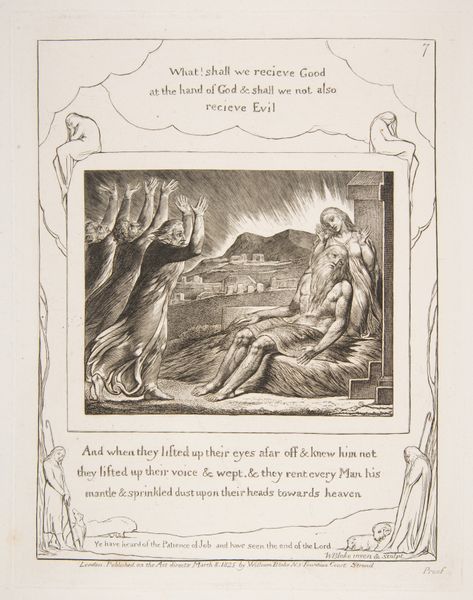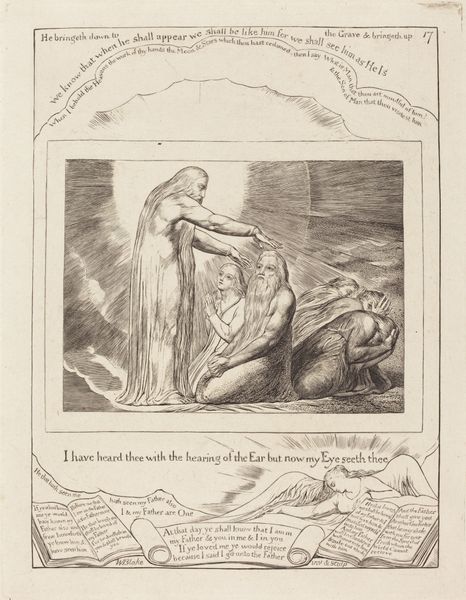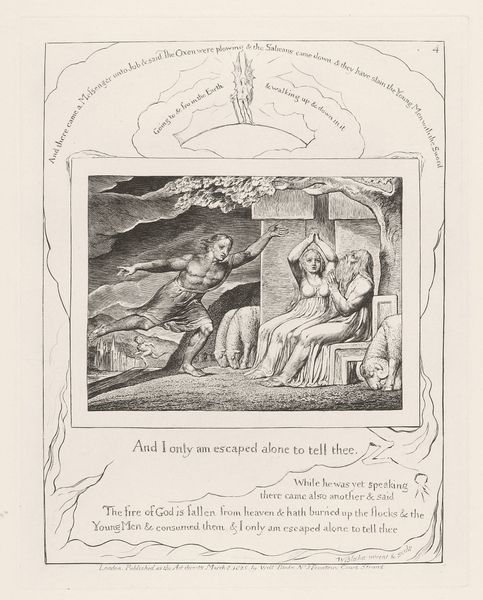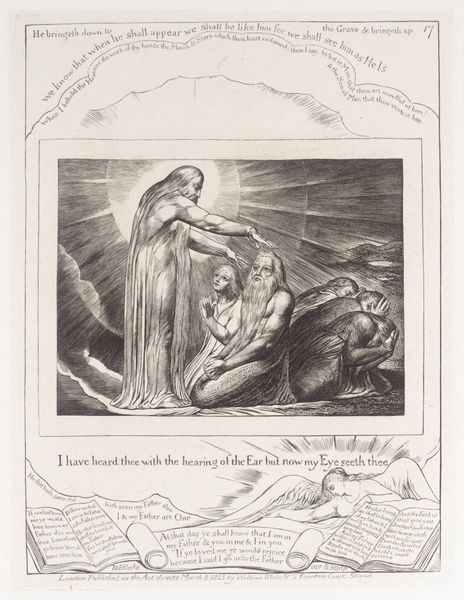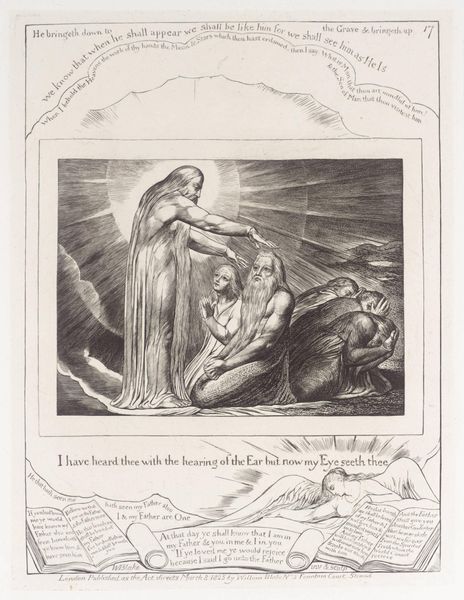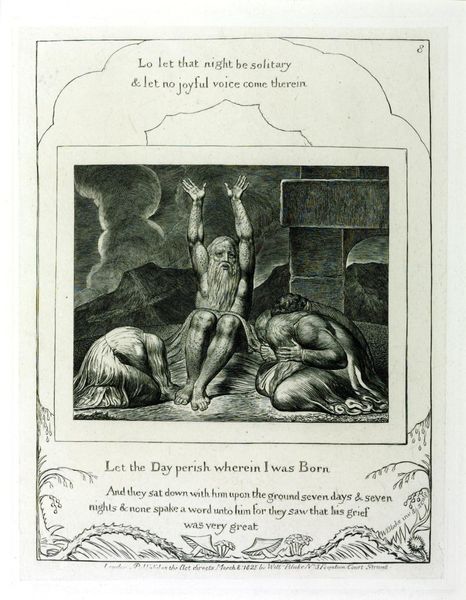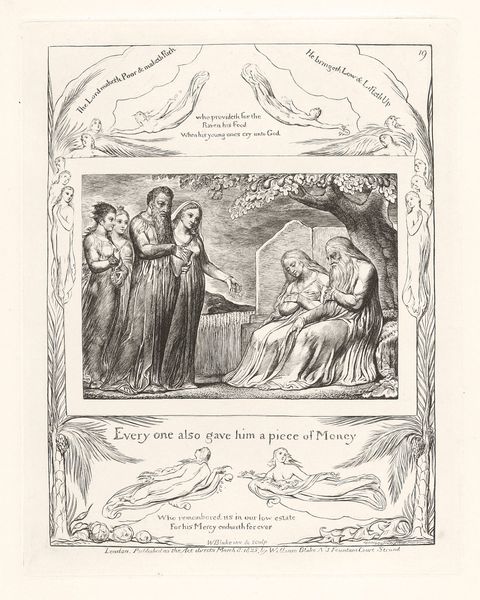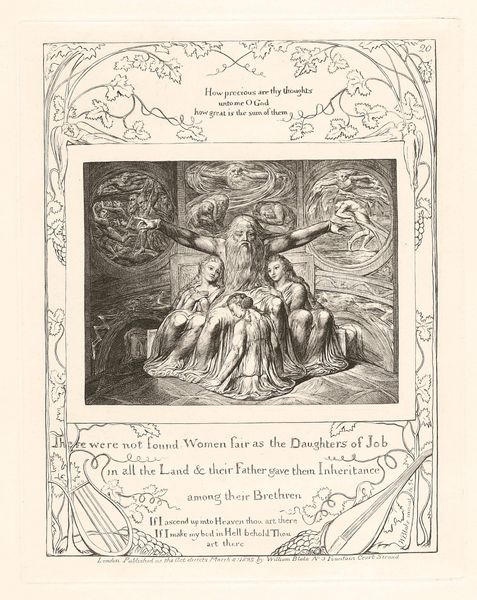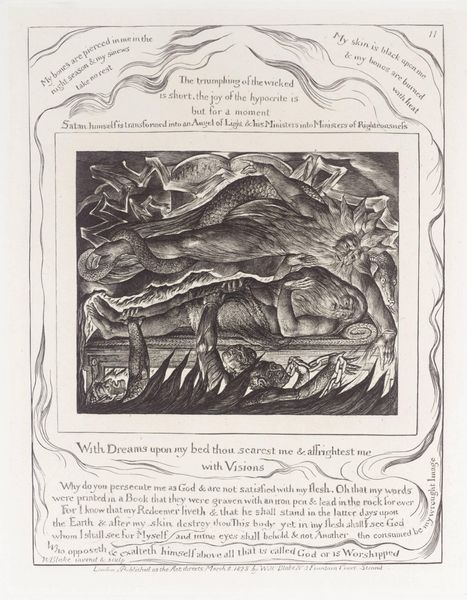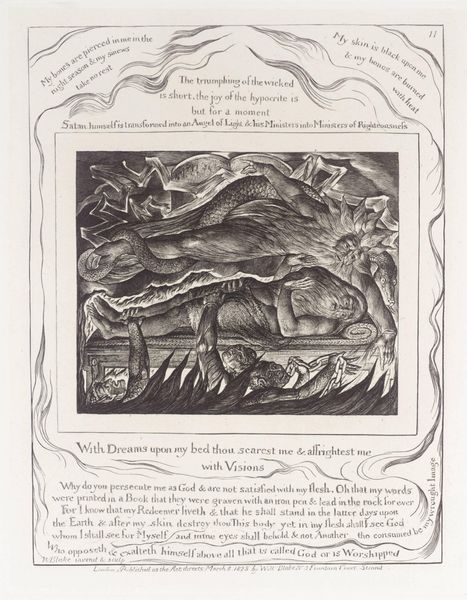
Dimensions: image: 198 x 153 mm
Copyright: NaN
Curator: Ah, this is "Job’s Comforters" by William Blake, part of his Illustrations of the Book of Job. It's haunting, isn’t it? Editor: It absolutely is. The stark contrast and the emaciated figures give off this overwhelming feeling of despair and alienation. Curator: Blake really captures the psychological torment, doesn’t he? Job is surrounded, but utterly alone in his suffering. Look at the rigid, almost accusatory gestures of the comforters. Editor: Exactly, they embody the cruelty of dogma, the way societal 'comfort' can be deeply oppressive. The text frames the image, questioning divine justice. It's a potent critique of power. Curator: I always felt the image questions the very nature of empathy, or lack thereof. The comforters are so consumed with their righteousness. Editor: And Job, a symbol of resilience, challenges the narrative that suffering is always deserved. It demands we question the systems that inflict pain. Curator: In a way, Blake dares us to be better comforters. Editor: Indeed. A reminder that solidarity requires more than pious words.
Comments
Join the conversation
Join millions of artists and users on Artera today and experience the ultimate creative platform.
tate 9 months ago
⋮
In Blake's series of twenty-one illustrations to the Book of Job this plate comes immediately after the one which shows Job being tortured by a rash of boils. Here he lies exhausted and resigned, supported by his wife. The words in the top margin are from Job's reproof to his wife after she has said to him 'curse God, and die' because of the trials he has suffered. Job's comforters, Eliphaz, Bildad and Zophar remain with him for seven days and nights. The small figures in the margins convey a sense of sorrow and patience. These are characteristics of Job's state of mind at this moment and for the foreseeable future. Gallery label, September 1998
